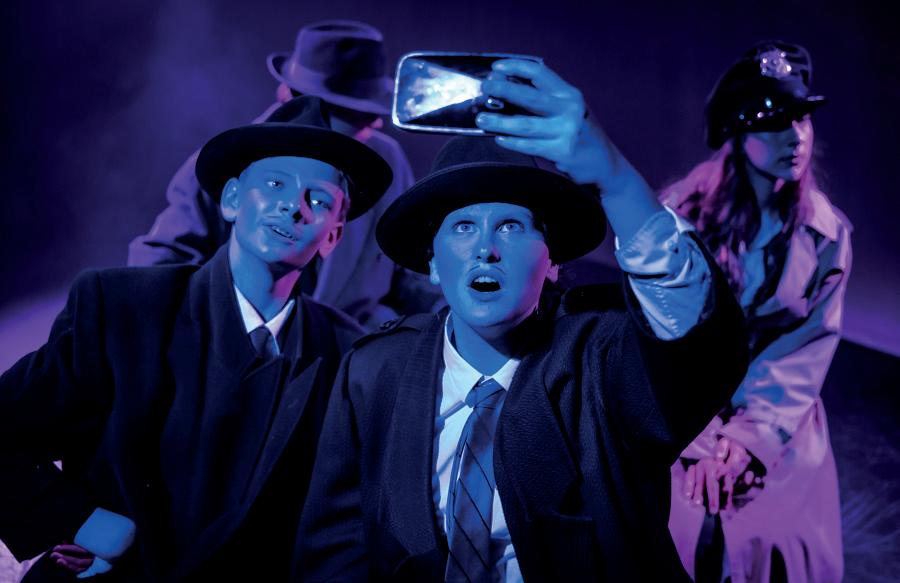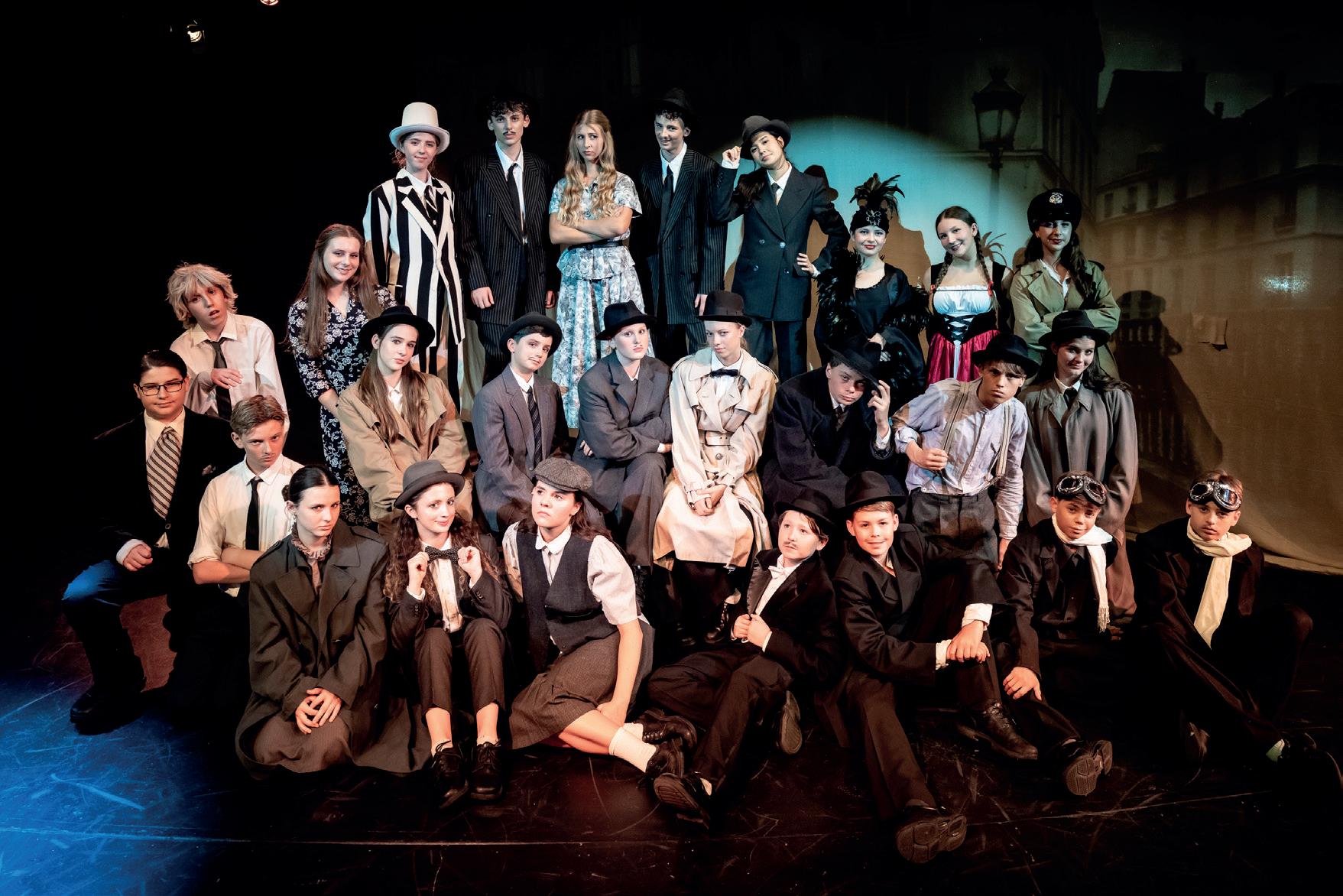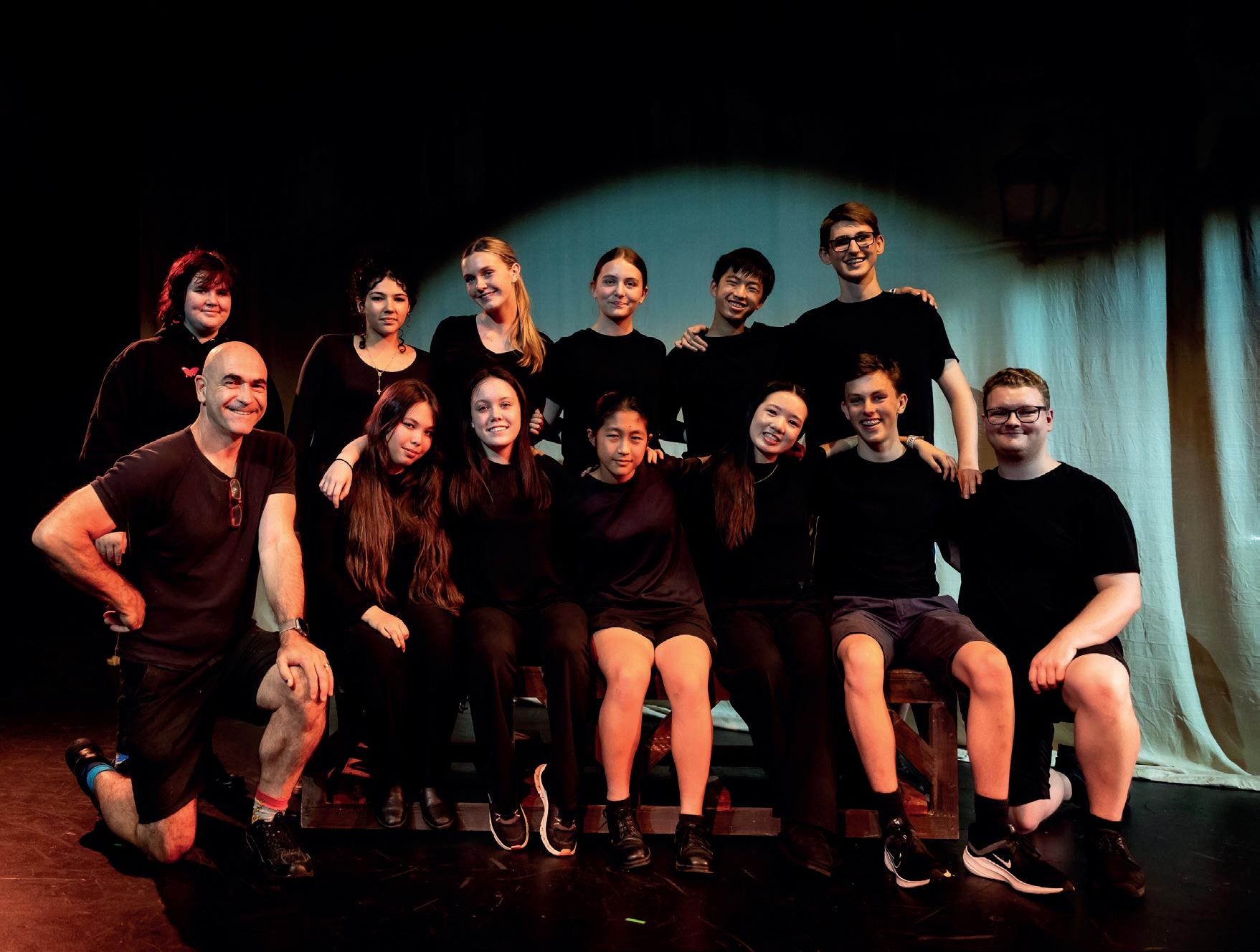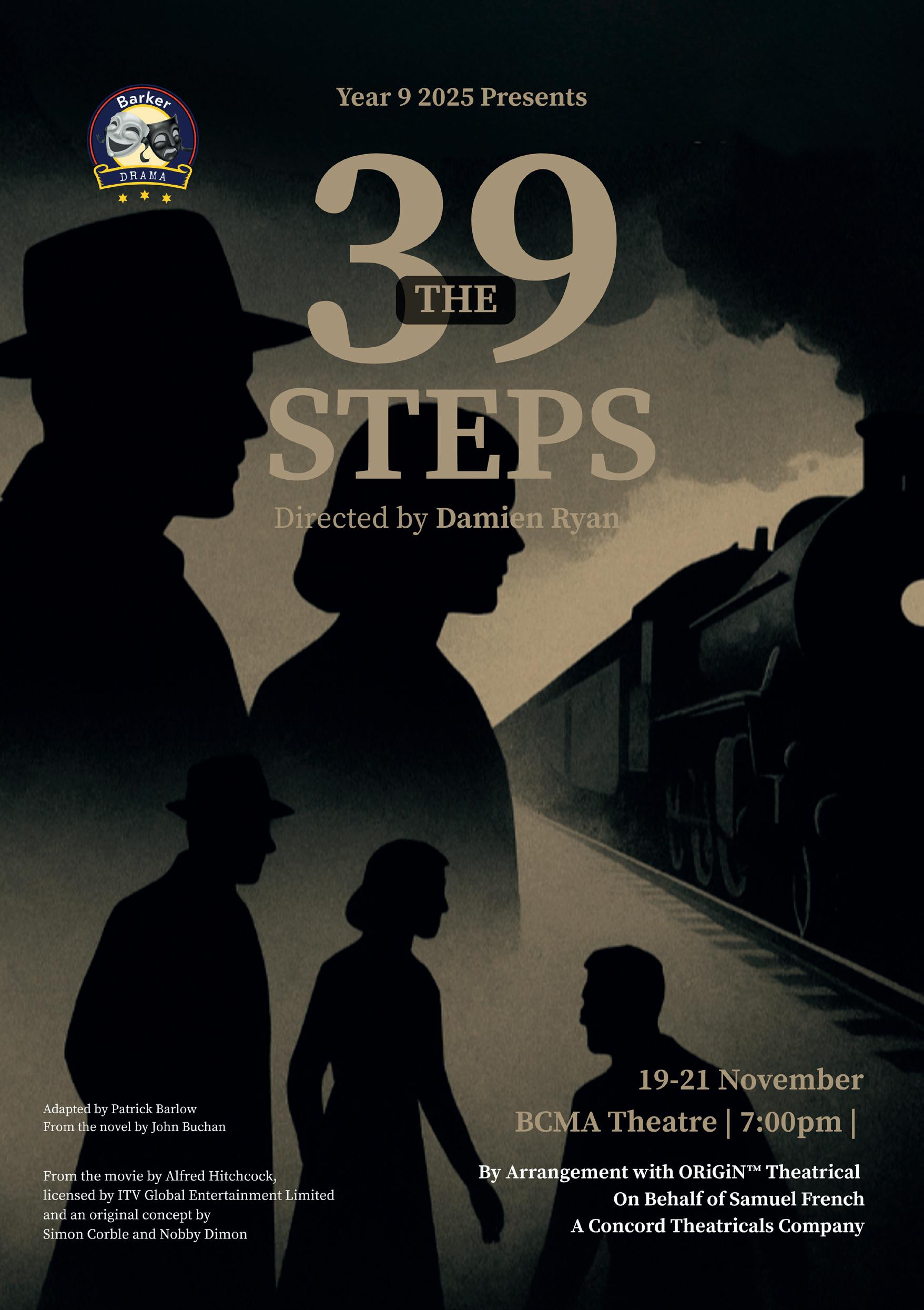

Mission
An Anglican community inspiring every learner every experience every day
Vision
To be a leader in Christian education that is characterised by a global vision that inspires hope Values

Commitment
Compassion
We acknowledge the Dharug, Darkinjung, Wonnarua and Yolŋu peoples who are the traditional custodians of the land on which Barker College, Darkinjung Barker, Ngarralingayil Barker and Dhupuma Barker stand. We pay respect to the Elders past, present and emerging of the Dharug, Darkinjung, Wonnarua and Yolŋu nations and extend that respect to other Indigenous people within the Barker College community.
Indigenous Australians have a rich history of storytelling, educating their children and sharing law, history, spirituality and morals through stories, song and dance. Inspired by this rich tradition, tonight these students will be sharing their stories. We hope you enjoy.
Welcome

It is with great delight that I welcome you to tonight’s performance of The 39 Steps.
This production represents one of those rare and wonderful moments in education where mind, body, soul and spirit unite in the pursuit of storytelling. For our cast and crew, preparing a piece of drama for public performance is an experience that shapes character, builds confidence and fosters creativity.
This year, our Year 9 students have been privileged to work under the guidance of professional theatre director, Mr Damien Ryan, whose expertise has brought Patrick Barlow’s fast-paced and comedic adaptation of the Hitchcock classic vividly to life. With wit, precision and inventive shadow play, the ensemble has embraced the demanding blend of suspense and farce, excelling in
multiple roles with well-rehearsed timing and physicality. Damien’s influence has been invaluable, and we extend our heartfelt thanks for his generosity and vision.
To the brilliant cast, the dedicated crew and the Barker Drama technical team – your creativity, commitment and collaboration have made this production possible. Tonight is a celebration of your many talents and we give thanks to God for the giftedness of our students and their dedication to our community. Enjoy the show!
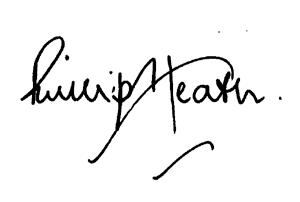
Phillip Heath AM Head of Barker College
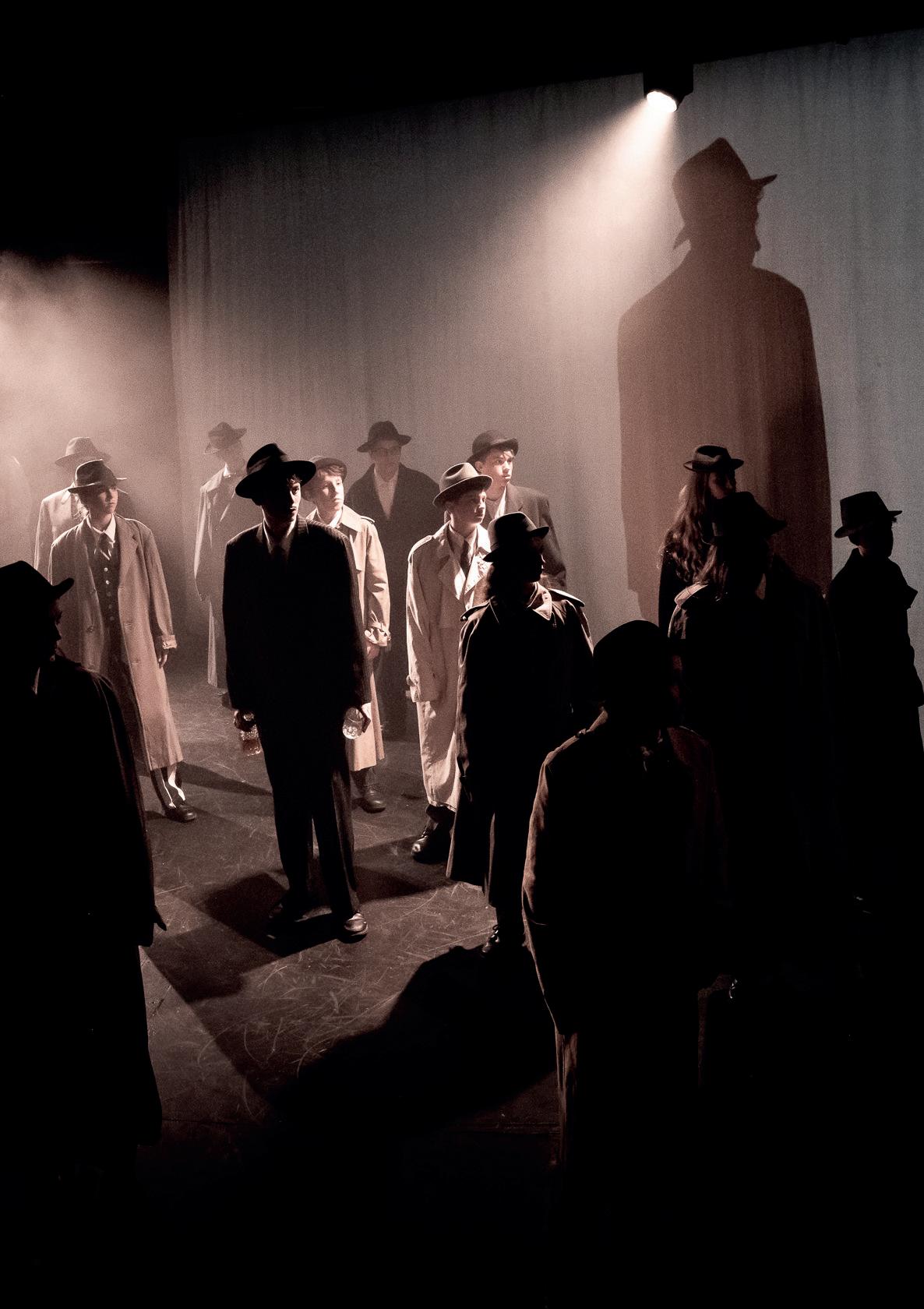
Director’s Note

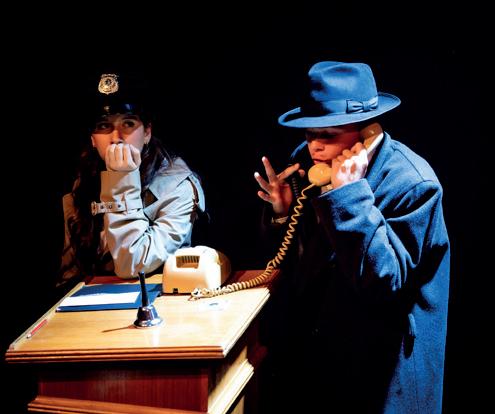
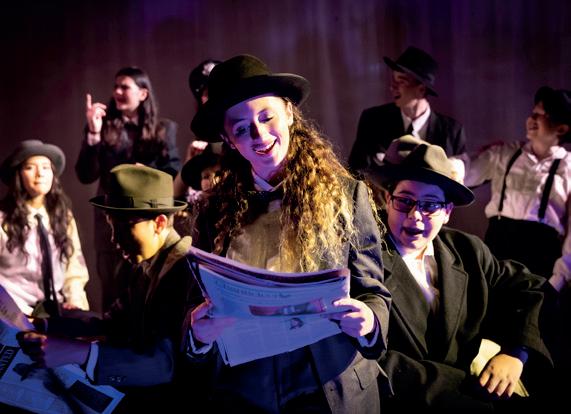
You could forgive theatre for having a serious axe to grind with cinema.
After all, theatre built the house, laid every stone and beam over millennia, invited us all in and gave a thousand generations a good night out — then film showed up about ten minutes ago like a charismatic lodger with flashy teeth and a smoke machine, and somehow ended up with the master bedroom and the remote control. But theatre, never a bitter soul, has remained a patient and attentive landlord, content to keep the garden and do the edges. Nowadays, we’re like moths on a mirror ball, a thousand forms of entertainment and distraction ruthlessly compete for our time and attention – when we’re not looking at our phones. But still, theatre keeps at it, keeps wooing us with that live, immediate human experience. And an essential part of its charm is laughter, communal, immersive, joyous laughter.
The 39 Steps is a rare alchemical trick in that sense — it began as a novel, became a hit film that poked fun at that novel, and is now a play, mercilessly lampooning and satirising that film and the spy genre it inspired – and yet, they all get along like the above-mentioned house is on fire. Because comedy is universal and inclusive.
But its helpful I think to understand how this much-loved story has travelled through all the major mediums of the past century: born in the daring of John Buchan’s brilliant 1915 novel, immortalised through the iconic lens of Alfred Hitchcock in 1935, and in subsequent films from other major directors, then lovingly reimagined for the theatre, first by Simon Corble and Nobby Dimon in 1996 who, over a pint or twelve, realised all it needed was 4 actors and masochistic stage manager, then by Patrick Barlow who adapted the work further into this script in 2005. That unusual evolution framed Buchan’s story not just as a tale of espionage and mistaken identity, but a tribute to the forms themselves, and to our love of stories. The stage version winks at the cinematic grammar of Hitchcock’s style, while revelling in the live magic only theatre can conjure: the clowning, the quickchanges, the metatheatrical mischief. It’s not just an adaptation — it’s really a reunion. A celebration of how these forms, sometimes rivals, can work in concert to remind us why we gather in the dark to be told stories at all.
Part of the reason they all get on so well is that both Buchan and Hitchcock remind the
audience unstintingly that the character, (the actor, the human being), is central and of utmost importance — Buchan’s novel is told in the first-person and his voice is immediate and darkly poetic, we are literally inside his head. Hitchcock, likewise, is all about the human predicament, his genius is forcing an ‘everyman’ into extremis and dragging us along with him or her. And, finally, the play is simply a joyous celebration of everything the actor can do and the rough magic of theatre – indeed, it pays that tribute even in its first plot device, when Richard Hannay’s innocent visit to the theatre (just as you are doing tonight), hurls him ‘down the rabbit hole’ or into ‘Dorothy’s hurricane’ or through ‘the wardrobe into Narnia’, and we, with him, are gifted an adventure, an immersive adventure. We like him, get “involved” in the world –the word chosen by the femme fatale spy, Annabella Schmidt, who first seduces Richard Hannay to find his inner James Bond –“involved”.
We are all a bit like Hannay today, aren’t we? — a little bewildered by a mad world, lost as individuals and maybe as a species, untethered, siloed from each other, seeking connection, drifting at times, even cynical, or shallow, caught in a modern malaise, alone in our darkened rooms – all of Hitchcock’s films are prescient of the idea that modern urban life has left us detached, empty — and that only through crisis do we discover our authenticity. The journeys begin with pure coincidence — random encounter, mistaken identity, chance invitation. Fate, in this world, is arbitrary and sometimes cruel. The “everyman/woman“ becomes a pawn in a game they don’t understand. We become Orestes, pursued by the Furies — Hitchcock alludes to that myth throughout his career — the inexorable chase motif – along with his love of another Greek myth, Perseus, given gifts and weapons by the Gods because he is ‘worthy’ — The 39 Steps gives Hannay
the gift of realising his interior values and strengths - courage, passion, patriotism, love. We are nowhere near ‘worthy’ yet, we have to prove we are, to ourselves as well as the world.
But amidst all of that, the story’s true value is its political courage I feel. And Hitchcock was as prescient as Buchan. Both could see where the world was going and the central role deceit and espionage would play in it. They both insisted the British people wake up – in 1915, then again in 1935 – to realise they are about to go through a truly dark night of the soul for which ‘ordinary’ people will need extraordinary reserves of courage, especially among the idle wealthier classes, the Richard Hannay’s. Signalling six years before it happens the coming Luftwaffe nightmare that nation will face, the story is quite literally a call to arms for a country too relaxed in its mundane rituals.
The novel, film and play offer an almost surreal journey to that recognition, with comedy as a form of liberation, but the point is, anyone has the potential to become a hero under pressure.
The heroes today are this wonderful cast and crew of Year 9 students — this is a challenging work, made in a short time, and comedy is like mathematics, it’s all patterns and timings and counting and shapes and this wonderful group has revelled in building this story for you. Not least because the play is intended for a cast of only 4 actors, playing all the roles, and our cast of 25 has worked tirelessly to adapt that to a broader ensemble. We hope you enjoy their joy and feast on their adventure. So come along, it’s a good way to get your Steps up!
Damien Ryan Director
Cast
Richard Hannay
Miro Roxburgh (Scenes 1 – 10 + 22 – 33)
Richard Hannay
Matthew Lander (Scenes 11 – 21)
Annabella & Detective Albright & Ensemble
Ellen Gray
Mr Memory & Mrs McGarrigle
Scarlett King
Compere & Ensemble
Jericho Alley
Heavy 1/Inspector 1 & Ensemble
Charlotte Walker
Heavy 2/Inspector 2 & Ensemble
Hamish Robertson
Heavy 3 & Ensemble
Oliver Toy
Sheriff & Ensemble
Lilly Forwood
Salesman 1 & Ensemble
Lachlan Funke-Andrews
Salesman 2 & Ensemble
Charli Sheppard
Mrs Higgins & Secretary & Salesman 3
Chelsea Culverson
Gretchen & Salesman 4 & Ensemble
Annie Clisdell
Pamela & Ensemble
Bree Hirst
John McIntye & Ensemble
Logan Sturrock
Margaret & Ensemble
Sadie Brown
Professor Jordan & Ensemble
Malachi Perry
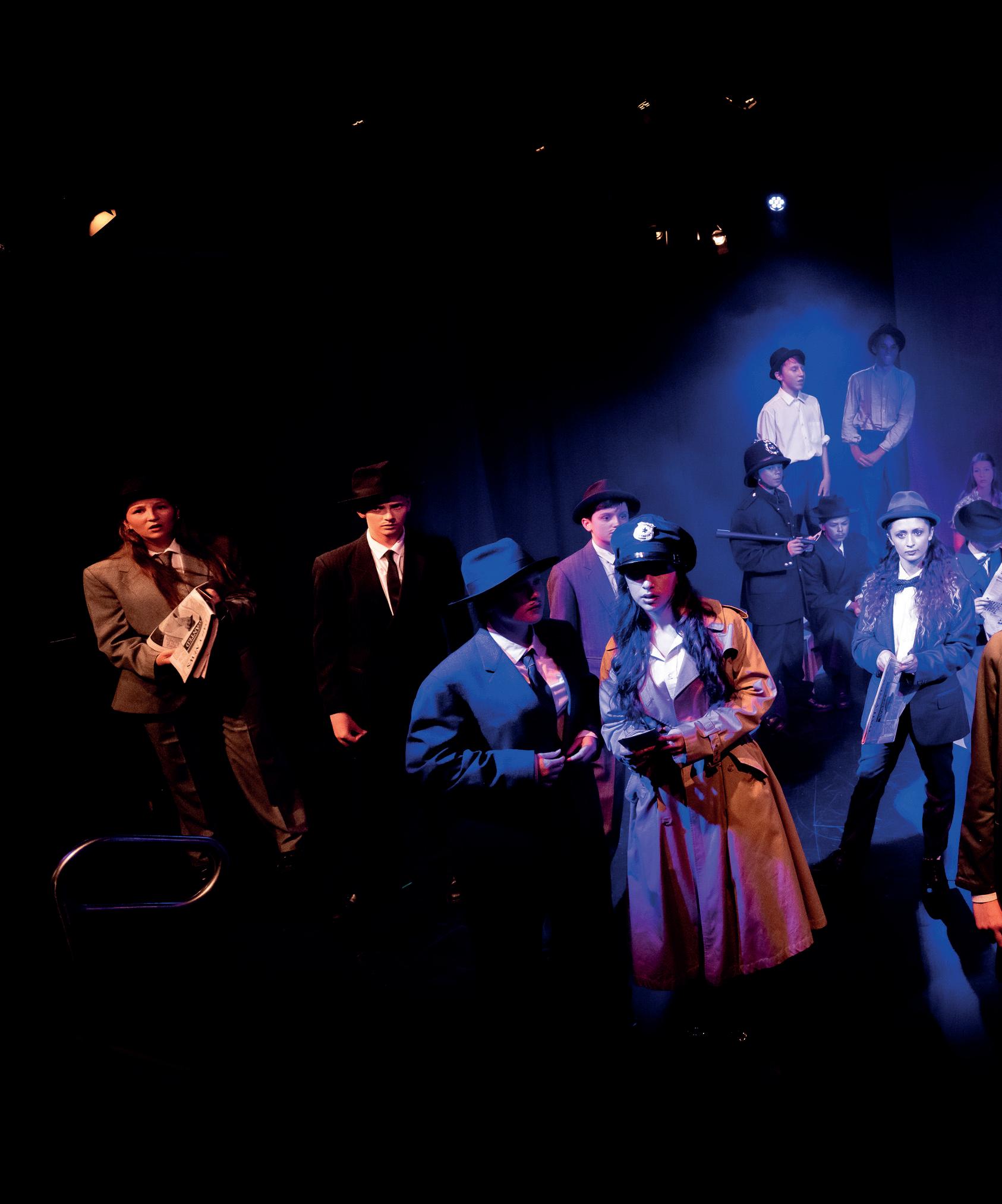
BBC Radio 1 & Mrs Jordan & Ensemble
Lilly Stahmer
Mr McGarrigle & Ensemble
Tom Nye
Milkman & Ensemble
Audrey Bown
Porter & Cop 3 & Ensemble
Eilish Bruce
Papergirl & Ensemble
Scarlett Wade
Cop 1 & Pilot 2 & Ensemble
Finn Cootes
Cop 2 & Pilot 1 & Ensemble
Hugo Bunting
BBC Radio 2 & Mrs Dunwoody & Ensemble
Gemma Woodhouse
Mr Macquarie & Ensemble
Joe Foxcroft
Production
Director
Damien Ryan
Set Design & Construction
Dugal Parker
Technical Director
Harry Whale
Production Coordinators
Pia Midgley
Karen James
Lighting
Qin Lu
Alejandra Sheridan Maestre
Sound/Projection
Zach Lam
Mia Ding
Natasha Horner
Stage Manager
Alistair Machon
Deputy Stage Manager
Nikita Wilmot
Anne Saunders
Assistant Stage Manager
Elliot Walker
Props
Lily Zihlmann
Ella Collins-Webb
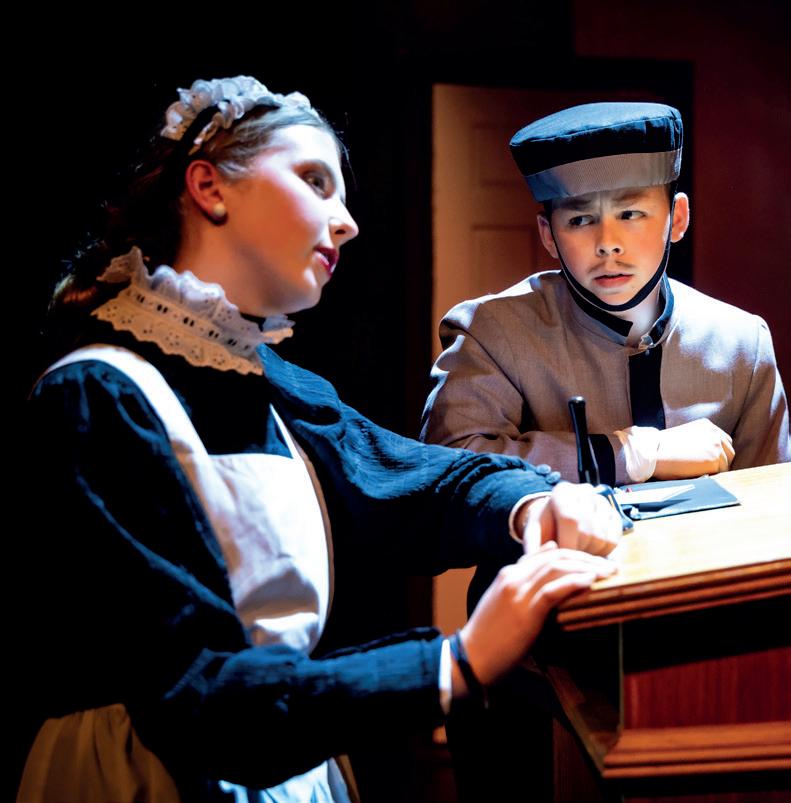

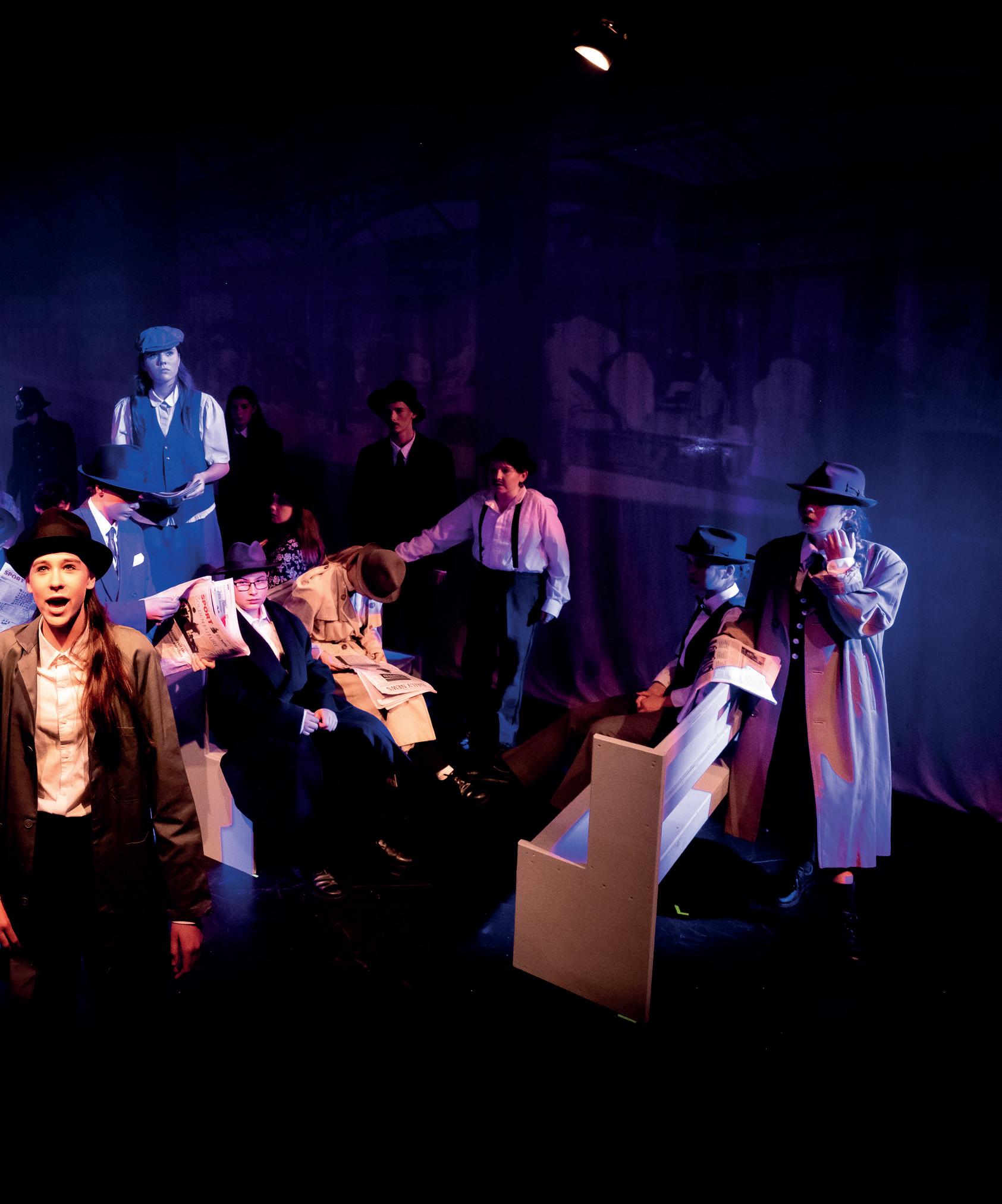
With Thanks to...
Phillip Heath AM - Head of Barker College, for his ongoing support of the Arts
Deputy Heads: Ms Alison Binet & Ms Natalie Potent for their ongoing support
Barker Executive Team
Barker Council
Barker Drama Staff for their encouragement, unstoppable energy & commitment to Drama at Barker
Barker College co-curricular staff for their ongoing support
Barker Communications
Barker Print Department
Barker Catering
Barker Maintenance & Security
The Parents and Families of our cast, crew and creative team for their continued support, patience and enthusiasm during the rehearsal process and performances.
